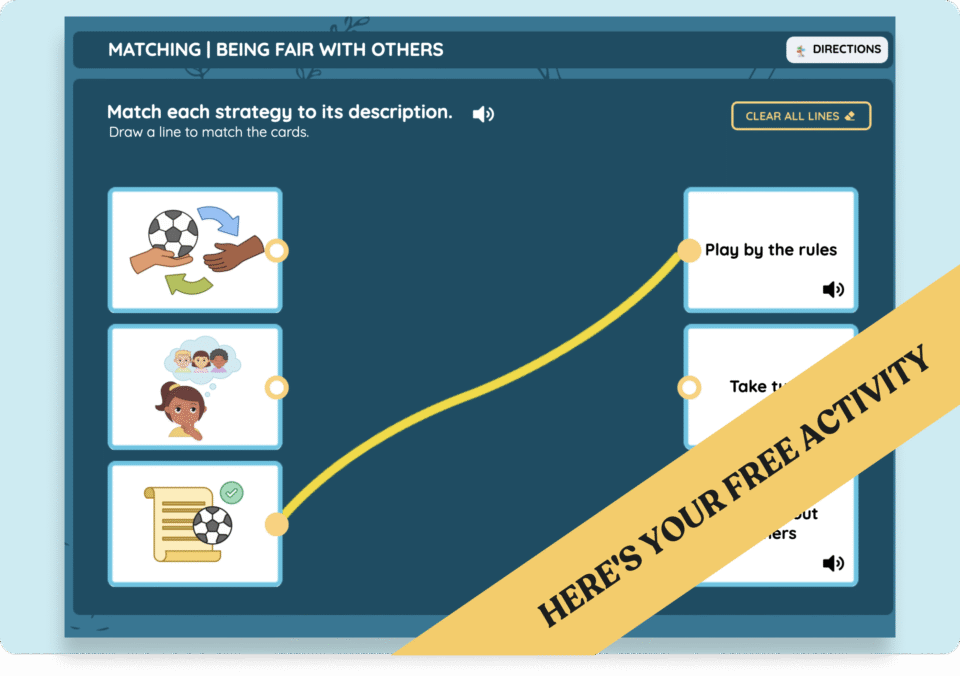Developing Social Chameleon Skills on the Playground
Get free social skills materials
No-prep lessons on self-regulation, emotional recognition, conversation skills, and more.
Sign up hereBeing a social chameleon is a valuable skill that helps students adapt their behavior to different social situations, enabling them to get along with others and enjoy a harmonious playtime. In this blog post, we will discuss an easy-to-implement activity for educators to teach students how to be social chameleons on the playground, followed by discussion questions, related skills, and next steps to further enhance their social-emotional learning.
No-Prep Activity: The Playground Observer
This activity requires no preparation or materials from the educator and can be easily implemented during recess or outdoor playtime. The goal of the Playground Observer activity is to help students practice tuning into their surroundings, reading the mood, and adjusting their actions to fit in with the time and place.
- Ask students to spend the first few minutes of playtime quietly observing their peers on the playground.
- Encourage them to pay attention to the games being played, the rules being followed, and the overall mood of their peers.
- After a few minutes, invite students to join a game or group of their choice, keeping in mind the observations they have made.
- Remind them to adjust their actions, voice level, and behavior to match the group they have chosen to play with, ensuring a fun and respectful playtime experience for everyone involved.
Discussion Questions
- How did observing the playground help you decide which group or game to join?
- What changes did you make to your behavior, voice level, or actions to match the group you joined?
- Why is it important to be a social chameleon on the playground? How does it help you and your peers have a better playtime experience?
- Can you think of a situation when being a social chameleon was challenging? What did you learn from that experience?
- How can you practice being a social chameleon in other social settings, such as in the classroom or at home?
Related Skills
In addition to being a social chameleon, students can benefit from developing the following related skills:
- Active Listening: Teaching students to listen carefully to their peers helps them better understand the social cues and emotional needs of others.
- Empathy: Encouraging students to put themselves in others’ shoes helps them develop compassion and understanding for their peers’ feelings and perspectives.
- Conflict Resolution: Equipping students with the skills to resolve conflicts in a respectful and constructive manner contributes to a positive playground environment.
- Communication: Fostering effective verbal and non-verbal communication skills enables students to express their thoughts and feelings clearly and respectfully.
Next Steps
Teaching students to be social chameleons on the playground is an essential aspect of their social-emotional learning. To further enhance their skills and explore additional resources, we encourage you to sign up for free samples of skill-building activities and materials at Everyday Speech. These resources will support you in fostering a positive and inclusive learning environment for your students.

